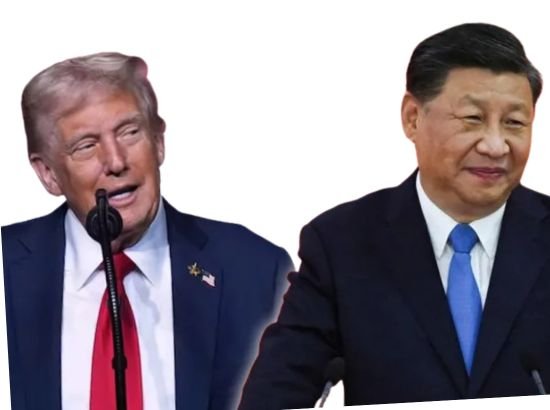
China Hits Back at Trump’s Tariffs: U.S. Soybean Imports Drop to Zero, Trade Tensions Escalate
In a major blow to the United States, China has completely halted soybean imports from America for the first time since 2018 — a direct response to President Donald Trump’s escalating tariff war. According to data released on Monday by China’s General Administration of Customs, U.S. soybean imports fell from 1.7 million metric tons a year ago to zero last month.
The sharp drop comes amid rising trade tensions between Washington and Beijing. Since taking office, President Trump has imposed tariffs on nearly every major trading partner, including India and China, triggering retaliatory measures that have soured diplomatic relations.
As China — the world’s largest soybean importer — shifts away from U.S. crops, Brazil and Argentina have stepped in to fill the gap. Customs data show that imports from Brazil surged 29.9% year-on-year to 10.96 million metric tons, accounting for 85.2% of China’s total soybean imports in September. Imports from Argentina also rose 91.5% to 1.17 million metric tons, or 9% of the total. Overall, China imported 12.87 million metric tons of soybeans in September — the second-highest monthly volume on record.
Analyst Wan Chengji of Capital Jindoo Futures said that high U.S. tariffs and a shortage of older American crop stocks were the main reasons behind the decline. “In a normal year, some leftover crop remains in the market, but the tariffs changed everything,” Chengji noted.
Experts warn that the ongoing trade standoff could cost American farmers billions of dollars. Chinese buyers have already booked shipments from Brazil and Argentina through November, leaving little room for U.S. soybeans in the global market. While Argentina’s temporary tax relief boosted exports, the situation could reverse early next year as Beijing risks a supply shortage before Brazil’s new harvest arrives.
Johnny Jiang, founder of Agradar Consulting in Beijing, cautioned that without a trade deal, China may face soybean shortages between February and April 2026. Brazil’s export capacity is nearly maxed out, and remaining old-crop reserves are uncertain. Meanwhile, renewed U.S.-China trade talks have reportedly resumed amid new tariff threats and export restrictions.
Despite the tensions, President Donald Trump said on Sunday that he remained “optimistic about a soybean deal”, suggesting a potential diplomatic thaw could still emerge.
U.S. soybean imports: 0 metric tons (down from 1.7 million)
Brazil imports: +29.9% (10.96 million tons)
Argentina imports: +91.5% (1.17 million tons)
Total China imports: 12.87 million tons (second-highest on record)
U.S. farmers’ losses: estimated in billions if standoff continues
China’s latest trade move marks a strategic counterpunch to Trump’s tariff policies, signaling deepening economic friction between the world’s two largest economies. With Beijing now relying heavily on South American suppliers, the U.S. agricultural sector faces mounting pressure, while trade negotiators on both sides scramble to prevent further escalation.